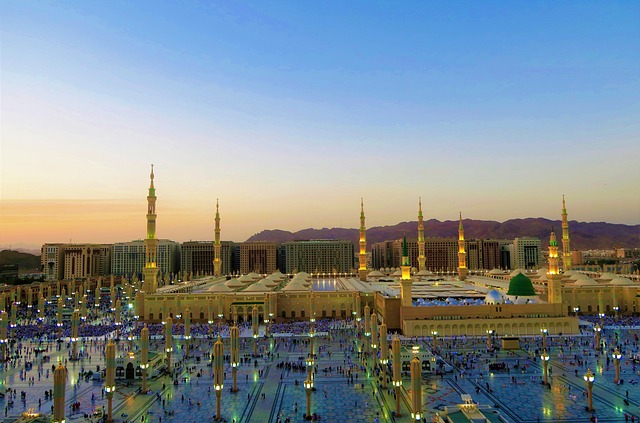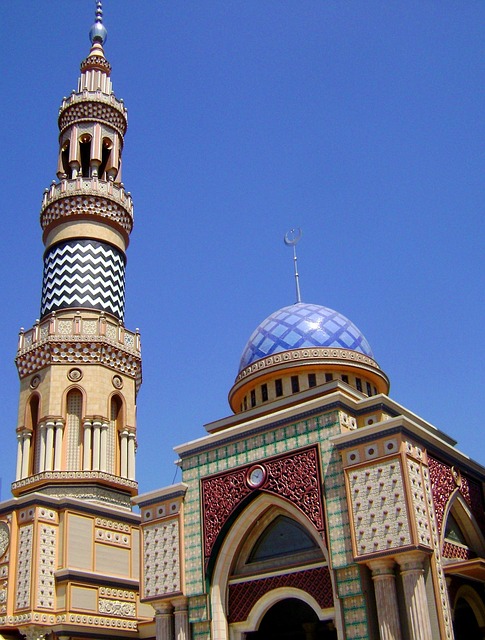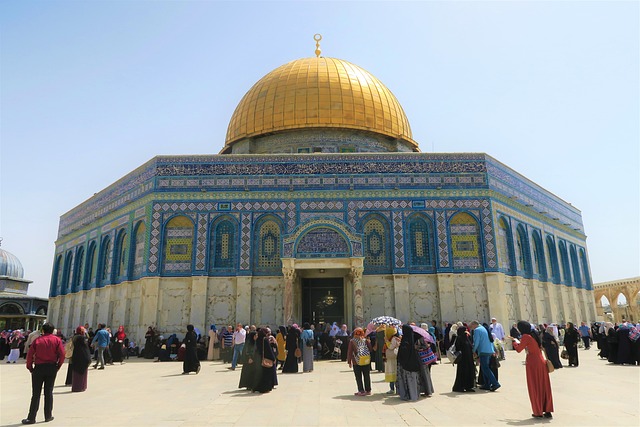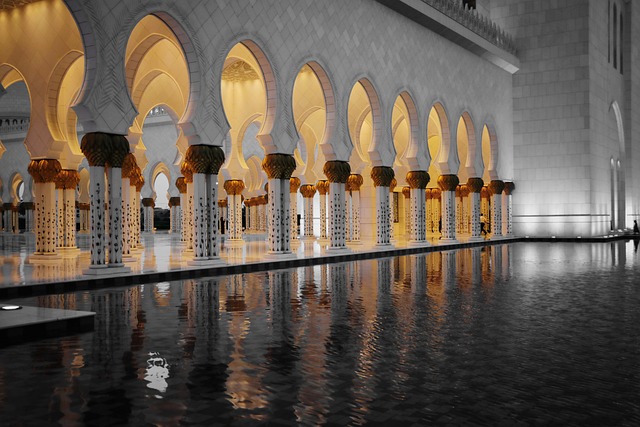Sacrificial rites, particularly Qurbani, are a central part of the Hajj experience for Cypriots planning their 2025 packages. These ceremonies symbolize devotion, humility, and community, reinforcing Islamic values through animal sacrifice and distribution of meat to pilgrims and the needy. By participating in these rituals, travelers from Cyprus contribute to a rich cultural heritage while fostering spiritual connections during their Hajj Packages 2025.
“As pilgrims converge on Mecca for the sacred journey of Hajj, sacrificial rites stand as a pivotal ritual. This comprehensive guide explores the cultural and religious heart of these practices, delving into their historical significance and modern interpretations. From understanding the ceremonial sacrifice to its impact on pilgrims’ spiritual growth, we navigate the intricate process and address challenges for those undertaking Hajj Packages 2025 from Cyprus. Discover how traditions endure while embracing a respectful evolution.”
- Understanding Sacrificial Rites: A Key Component of Hajj
- The Cultural and Religious Significance of Sacrifice in Hajj
- The Process: HowSacrificial Rites are Conducted During the Pilgrimage
- The Impact of Sacrifice on Pilgrims' Spiritual Journey
- Challenges and Considerations for Hajj Packages 2025 from Cyprus
- Embracing Tradition: Ensuring Respect for Sacrificial Rites in Modern Times
Understanding Sacrificial Rites: A Key Component of Hajj
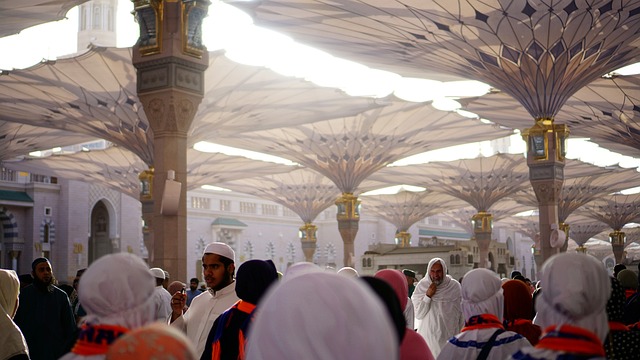
Sacrificial rites are an integral part of the Hajj experience, marking a significant transition for pilgrims as they conclude their spiritual journey. These rituals hold deep cultural and religious significance, especially in the context of Cyprus-based Hajj packages 2025. The act of sacrifice symbolizes devotion, humility, and submission to the divine will, reflecting the core values upheld during this sacred pilgrimage.
In the final stages of Hajj, pilgrims participate in the ritual of animal sacrifice, known as Qurbani. This ceremonial act involves the slaughter of an animal—usually a sheep or goat—as a tribute to Allah. The meat is then distributed among the participants and those in need, fostering a sense of community and compassion. This practice not only strengthens the bond between pilgrims but also reinforces the principles of equality and generosity that are central to Islamic teachings.
The Cultural and Religious Significance of Sacrifice in Hajj
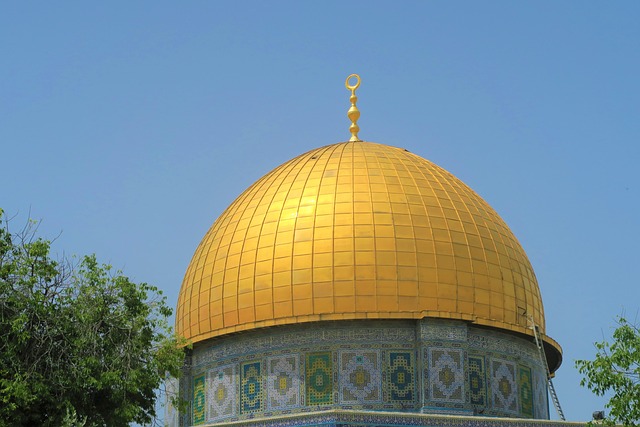
The act of sacrifice holds profound cultural and religious importance in the Hajj pilgrimage, a journey that offers an unparalleled spiritual experience for Muslims worldwide. In the context of Hajj Packages 2025 from Cyprus, understanding this ritual is essential as it forms a significant portion of the overall journey’s meaning. The term ‘sacrifice’ takes on various meanings during Hajj, but primarily it symbolizes self-abnegation and giving up something valuable to achieve a higher purpose—a notion deeply rooted in Islamic teachings.
At its core, sacrifice in Hajj represents the spirit of submission to God’s will. Pilgrims from all walks of life come together to participate in these rites, which involve both physical and financial offerings. The most tangible form is the ritual slaughtering of animals, a practice that echoes back to the time of Prophet Ibrahim (Abraham), who was prepared to sacrifice his son as an act of obedience to God’s command. This tradition continues today, with Hajj packages often including provisions for animal sacrifices, ensuring the pilgrimage’s cultural and religious integrity remains intact while catering to modern-day pilgrims.
The Process: HowSacrificial Rites are Conducted During the Pilgrimage
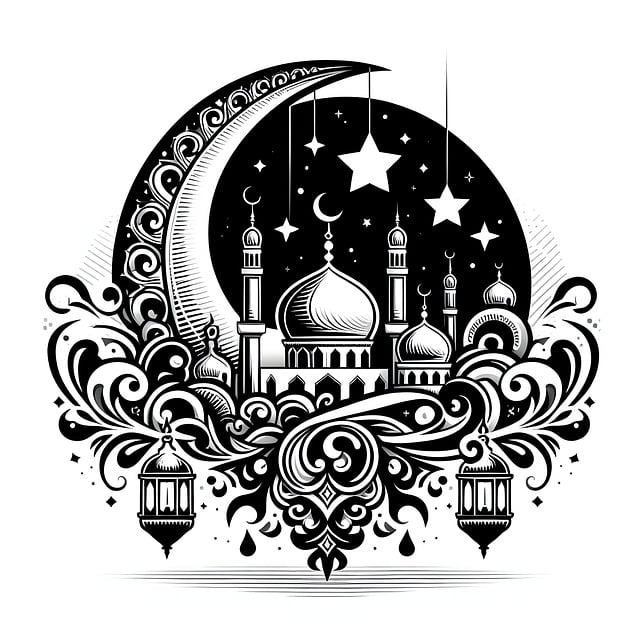
During the Hajj pilgrimage, sacrificial rites play a pivotal role in concluding the spiritual journey. These rituals are deeply rooted in Islamic tradition and hold immense significance for pilgrims from around the world, including those booking Cyprus-based Hajj packages in 2025. The process begins with the selection of a designated animal, typically a goat or sheep, which is considered an offering to Allah. Pilgrims or their representatives carefully prepare the animal, ensuring it meets the necessary criteria as outlined in Islamic teachings.
The actual sacrificial ceremony takes place during a specific window of time on the final day of Hajj. Pilgrims gather at a designated area, often marked by grand structures or open spaces, where religious leaders guide the ritual. With devotion and reverence, the animal is slaughtered, and its meat is distributed among the participants and those in need. This act symbolizes sacrifice for the greater good, fostering a sense of community and spiritual connection among the pilgrims. The shared experience leaves a profound impact, as they reflect on their own lives and strive to emulate the virtues of Prophet Ibrahim (Abraham), who is revered in this ritual.
The Impact of Sacrifice on Pilgrims' Spiritual Journey
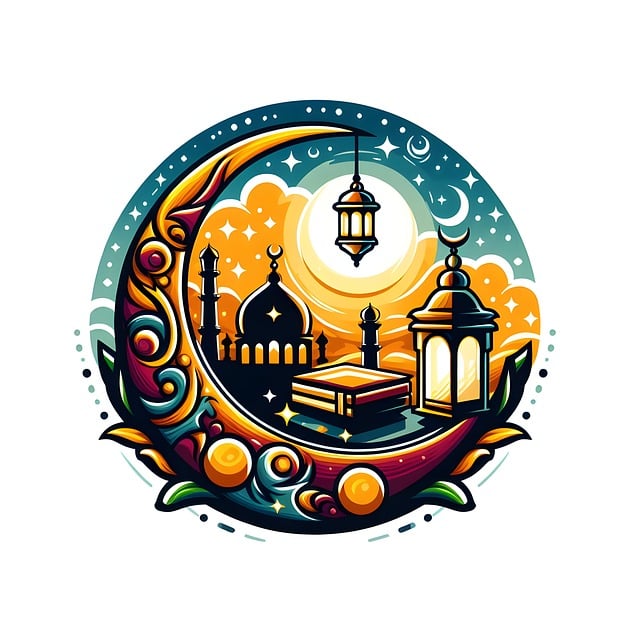
Challenges and Considerations for Hajj Packages 2025 from Cyprus

The Hajj, a pilgrimage that brings millions together in unity and devotion, presents unique challenges for travel organizers, especially when catering to specific regions like Cyprus. As we look ahead to 2025, ensuring smooth and meaningful Hajj Packages for Cypriots requires careful consideration. One of the primary concerns is accommodating diverse needs within a structured itinerary. With varying ages, health conditions, and personal preferences, designing inclusive packages becomes essential.
Cyprus’s distance from Saudi Arabia also poses logistical challenges. Efficient transportation options, comfortable accommodations, and well-planned daily schedules are crucial to mitigate travel fatigue. Additionally, cultural sensitivity plays a vital role in creating meaningful experiences. Organizing Hajj packages that blend spiritual enrichment with cultural insights will enhance the overall journey for Cypriots embarking on this sacred quest.
Embracing Tradition: Ensuring Respect for Sacrificial Rites in Modern Times

In the sacred journey known as Hajj, the final chapter is often marked by powerful sacrificial rites that leave a profound impact on pilgrims. As they conclude their pilgrimage in 2025, many travelers from Cyprus and beyond will participate in rituals that have been practiced for centuries. These ceremonies not only hold historical significance but also serve as a testament to the respect and reverence given to religious traditions.
Embracing these sacrificial acts is crucial in maintaining the integrity of Hajj experiences. In modern times, it’s essential to ensure that the spirit and meaning behind these rituals are understood and appreciated. By participating with an open mind and deep appreciation, pilgrims from Cyprus can contribute to a living tapestry of cultural heritage, fostering a profound connection between the past and present during their Hajj packages in 2025.
The sacrificial rites, a central and profound aspect of the Hajj, offer pilgrims a transformative experience that resonates long after their return. As they navigate the challenges and embrace traditions, especially considering the nuances of modern times, the ritual’s cultural and religious significance remains unbroken. For those planning Hajj Packages 2025 from Cyprus, understanding these rites is essential, ensuring a respectful and meaningful journey that honours ancient customs while addressing contemporary considerations.
